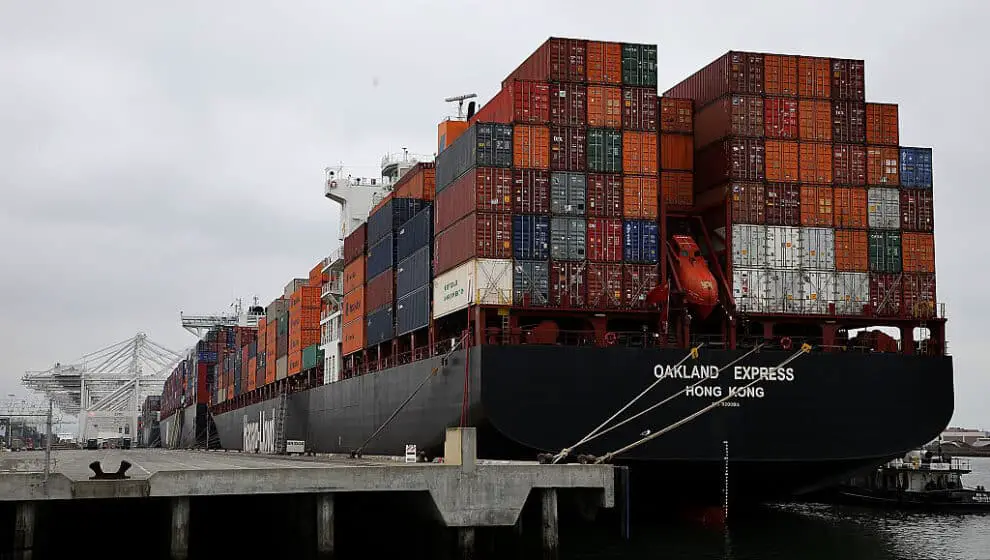Shipping in several West Coast ports came to a halt on Monday as ongoing negotiations between dockworkers and companies stalled.
Key Details
- Workers’ unions and shipping companies have been locked in difficult negotiations for nearly two years.
- Talks hit another snag at the beginning of the week, resulting in “throttled” West Coast ports, The Wall Street Journal reports.
- Similar troubles have paused West Coast ports several times over the last couple of months, raising concerns about supply chains and pushing business to East Coast ports, Axios reports.
- Some trade industries have requested the Biden administration step in to resolve the labor dispute, but for now, the White House says it will continue to monitor negotiations.
Why it’s news
Troubles at West Coast ports are reminiscent of supply chain issues during the height of COVID. While disruptions have not reached that level, the constant delays could bring about greater problems for trade companies.
Discussions began in May 2022 as the International Longshore and Warehouse Union (ILWU) and Pacific Maritime Association (PMA) sat down with trade executives. ILWU represents over 22,000 workers at 29 West Coast ports. PMA represents shipping companies and terminal operators. The union contract expired in July 2022, Axios reports.
While the dockworkers have not called for a strike, there have been a growing number of worker actions—meaning union workers have failed to show up for shifts. These worker actions have led to slower operations or temporary port shutdowns.
In March, one union branch chose to take lunch at the same time, forcing the port to shut down during meal times. The now-expired contract had required staggered mealtimes to prevent this from happening.
Temporary, hour-long shutdowns at a few ports across the West Coast may not have much effect, but as negotiations continue to drag on, customers are becoming less understanding of delays. Constant gaps in service are also beginning to affect the West Coast’s reputation as a reliable port, Axios reports.
As a result, business is shifting from the West Coast to the East. In 2003, Los Angeles and Long Beach ports were responsible for 57% of Trans-Pacific imports. Last year, they handled 45%. Over time, this decline will begin to affect the Californian economy.
In the meantime, negotiations are still moving forward. Unions and executives have agreed on some automation terms but have yet to negotiate a satisfactory wage agreement.
